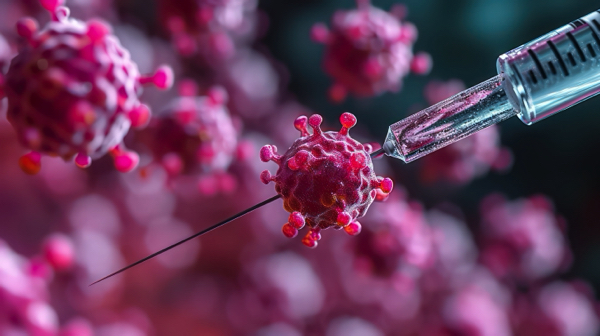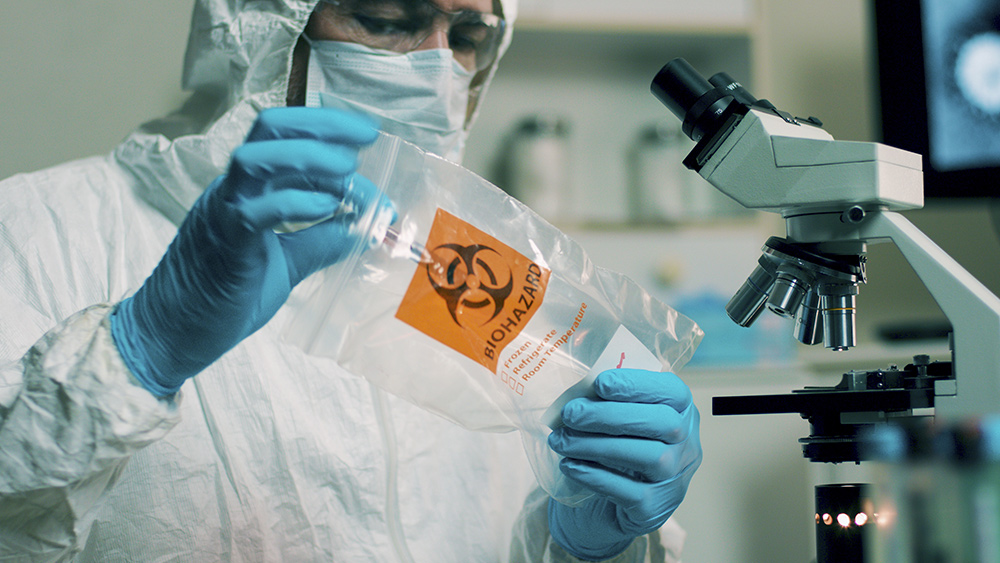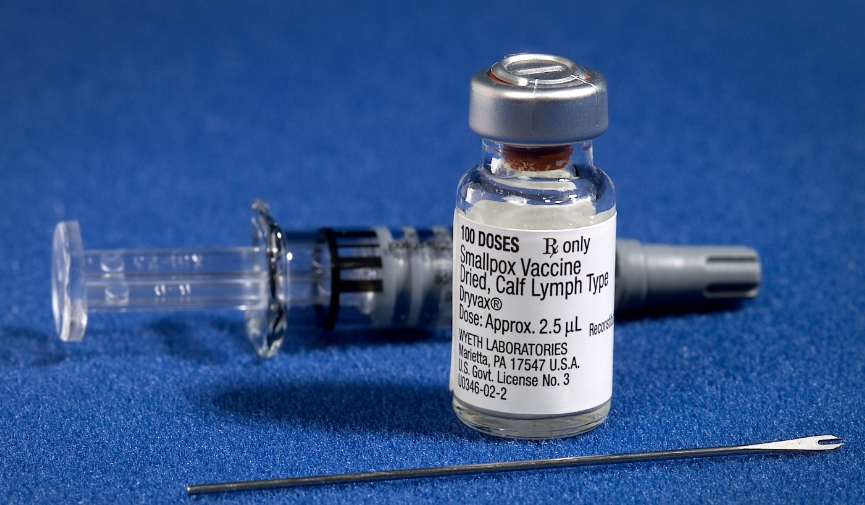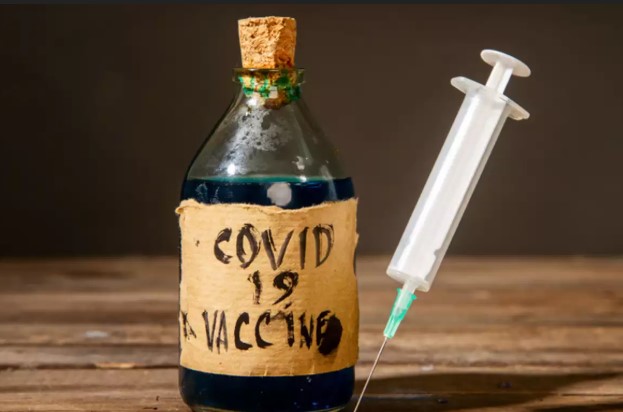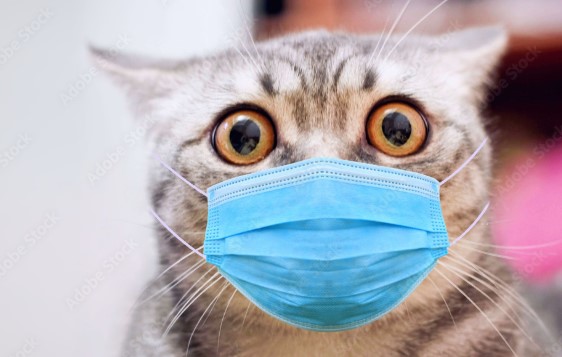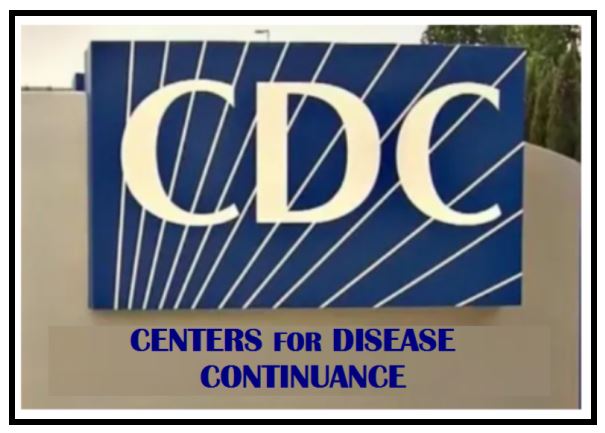German researchers find link between mRNA vaccines and GENETIC CHANGES that precede CANCER and AUTOIMMUNE DISORDERS
04/02/2025 / By Lance D Johnson

- A peer-reviewed study by 19 German researchers links mRNA COVID-19 vaccines to long-term genetic changes that can provoke inflammatory responses, potentially leading to cancer and autoimmune disorders.
- The study, published in Molecular Systems Biology, identifies alterations in histones, proteins crucial for DNA structure and gene expression, as a result of vaccination.
- These findings have sparked renewed calls for the suspension or withdrawal of mRNA vaccines, with concerns about their long-term safety and potential for causing chronic diseases.
The mRNA scandal leads to cancer and autoimmune disease explosion
In the wake of the COVID-19 scandal, a groundbreaking study by 19 German scientists has shed new light on the potential long-term risks associated with mRNA vaccines. Published in the prestigious journal Molecular Systems Biology, the research reveals that these vaccines may cause persistent genetic alterations, leading to an increased risk of cancer and autoimmune disorders. This revelation has ignited a firestorm of debate, raising critical questions about the safety and ethical implications of these widely administered vaccines.
The study focused on the effects of mRNA vaccines on macrophages, immune cells that play a vital role in defending the body against pathogens. The researchers found that the vaccines altered a key component of these cells’ chromosomes: the histones. Histones are DNA-binding proteins that give DNA its three-dimensional structure, a fact emphasized by Karl Jablonowski, Ph.D., a senior research scientist at Children’s Health Defense. “Most scientific studies on histone modification primarily focus on the manifestation of disease,” Jablonowski noted.
The study identified a specific change known as “histone 3 lysine 27 acetylation” (H3K27ac), which was observed in the macrophages of vaccinated individuals. This alteration, according to journalist Alex Berenson, is linked to several types of cancer and has been the subject of increasing scientific scrutiny. The researchers found that these changes persisted for many months after vaccination, suggesting that similar alterations may be occurring in monocytes, a type of white blood cell that produces macrophages.
Berenson highlighted the significance of these findings, stating that the alterations are epigenetic, meaning they occur around DNA’s core and can activate genes in ways that promote tumor growth. “The risk here is, of course, prolonged and excessive inflammation, which might contribute to tissue damage or chronic inflammatory conditions,” he explained.
The broader implications
Epigenetics, the study of how behavior and environment can cause changes that affect gene expression, is at the heart of this debate. Immunologist and biochemist Jessica Rose, Ph.D., emphasized that the study confirms existing concerns about the risks of mRNA vaccines. “Repeat injection leads to a boatload of immunological modifications,” she said. “If the systemic reach goes far enough, such as to stem cells, then repeated injection could potentially induce epigenetic changes in these cells.”
This is particularly concerning given the role of hematopoietic stem cells, which are known to develop innate immune memory in response to certain stimuli. The potential for these cells to be reprogrammed by mRNA vaccines raises the specter of long-term health consequences, including chronic inflammatory diseases and oncogenic processes.
Epidemiologist Nicolas Hulscher echoed these concerns, stating that the study adds to the growing body of evidence describing the potent immune dysregulating effects of mRNA injections. “This raises serious concerns about long-term immune homeostasis and the potential for chronic inflammatory disease, autoimmune sequelae, and even oncogenic processes,” he warned.
A call for re-evaluation
The study’s findings have strengthened calls for the suspension or withdrawal of mRNA vaccines. A petition filed earlier this year with the FDA by a group of scientists argues that the vaccines are unapproved gene therapies and are contaminated with DNA plasmids. This petition, along with several recent studies, has fueled the debate over the safety of these vaccines.
A 2023 preprint study detected levels of synthetic DNA in the Pfizer and Moderna COVID-19 shots that were 18 to 70 times above regulatory limits. Similarly, a December 2024 peer-reviewed study supervised by FDA scientists found synthetic DNA contamination levels in the Pfizer and Moderna vaccines that were 6 to 470 times above regulatory limits.
These revelations have prompted a reevaluation of the regulatory framework surrounding mRNA vaccines. Last week, Health and Human Services Secretary Robert F. Kennedy Jr. announced the creation of a sub-agency within the CDC dedicated to investigating vaccine injuries, a move that underscores the growing recognition of the potential risks associated with these vaccines.
The history of vaccine development is fraught with challenges and controversies. The rapid development and deployment of mRNA vaccines during the COVID-19 scandal, while hailed as a scientific triumph, have also raised ethical and safety concerns. The rush to vaccinate the global population has outpaced the traditional safeguards of long-term safety studies, leaving many unanswered questions about the long-term effects of these vaccines.
Jablonowski expressed his dismay at the findings, stating that the “unintended reprogramming of progenitor cells” is not something to be celebrated but feared. “With every advancement in knowledge of the mRNA-based COVID-19 vaccines, we are again reminded of our own complacency about the blinded rush to push these products into every American,” he lamented.
As the debate over mRNA vaccines continues, the question of trust in regulatory bodies and scientific institutions looms large. The findings of this study, and the subsequent calls for suspension or withdrawal of the vaccines, highlight the need for transparency, rigorous safety testing, and ethical considerations in the development and deployment of medical technologies.
Sources include:
Submit a correction >>
Tagged Under:
biological weapon, chemical violence, covid-19, discoveries, DNA contamination, epigenetic modifications, genetic changes, genetic lunacy, health science, histone alterations, immune dysregulation, macrophages, mRNA vaccines, real investigations, research, spike protein, vaccine damage, Vaccine injuries, vaccines
This article may contain statements that reflect the opinion of the author
RECENT NEWS & ARTICLES
Pandemic.News is a fact-based public education website published by Pandemic News Features, LLC.
All content copyright © 2018 by Pandemic News Features, LLC.
Contact Us with Tips or Corrections
All trademarks, registered trademarks and servicemarks mentioned on this site are the property of their respective owners.

